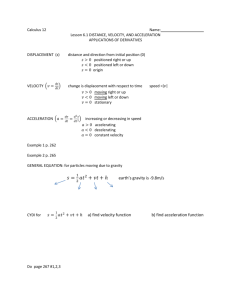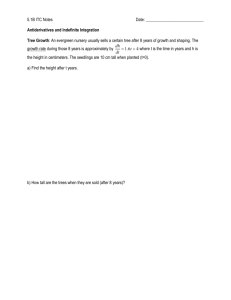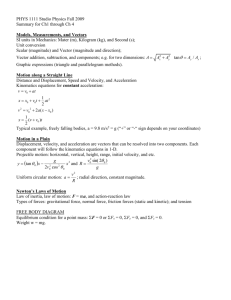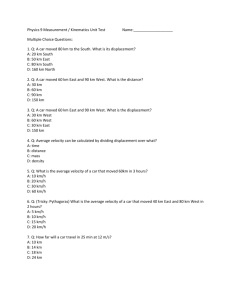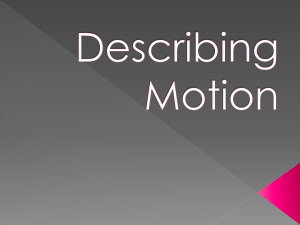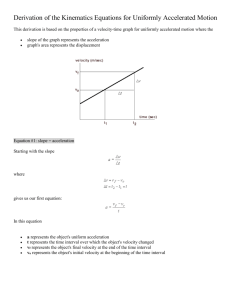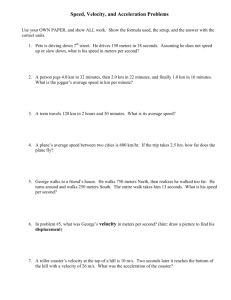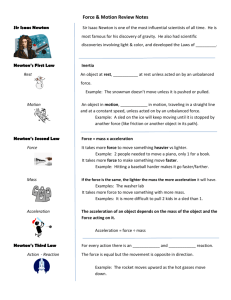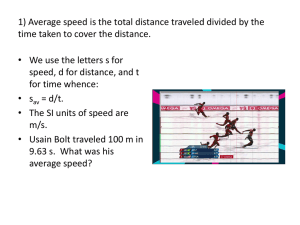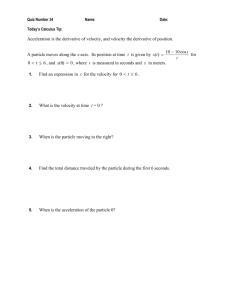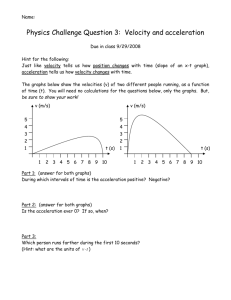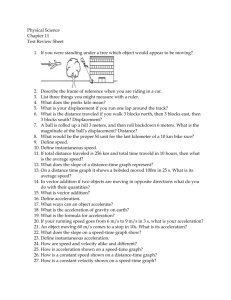Ch11_Test - the Autistic Support Wiki Space!
advertisement
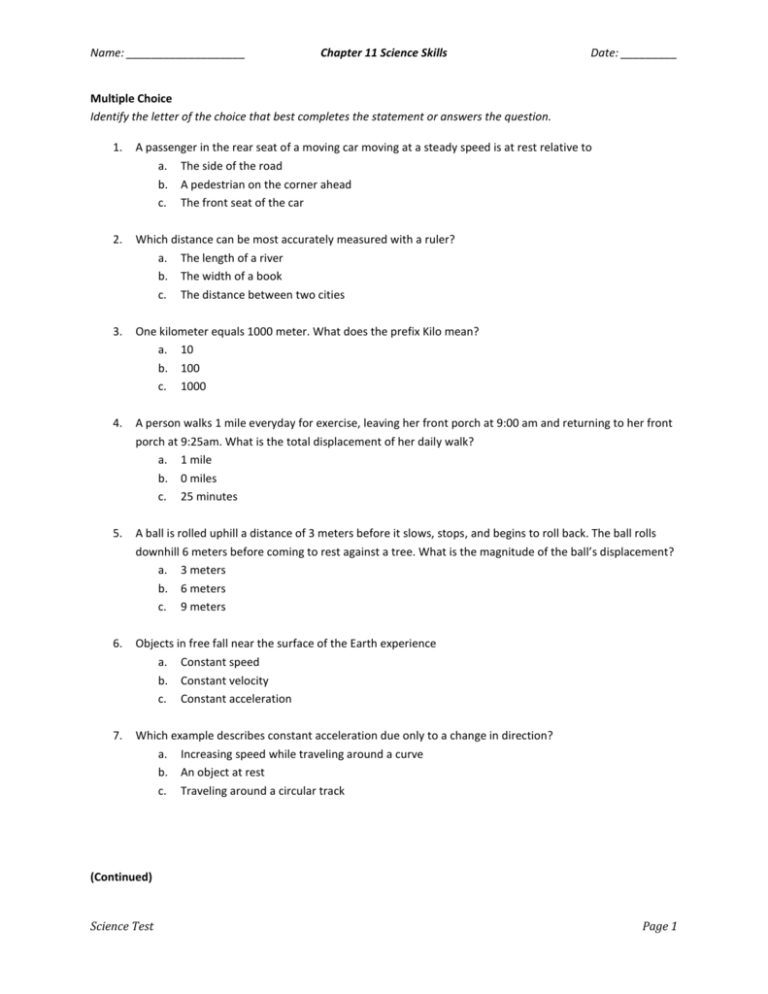
Name: ___________________ Chapter 11 Science Skills Date: _________ Multiple Choice Identify the letter of the choice that best completes the statement or answers the question. 1. A passenger in the rear seat of a moving car moving at a steady speed is at rest relative to a. The side of the road b. A pedestrian on the corner ahead c. The front seat of the car 2. Which distance can be most accurately measured with a ruler? a. The length of a river b. The width of a book c. The distance between two cities 3. One kilometer equals 1000 meter. What does the prefix Kilo mean? a. 10 b. 100 c. 1000 4. A person walks 1 mile everyday for exercise, leaving her front porch at 9:00 am and returning to her front porch at 9:25am. What is the total displacement of her daily walk? a. 1 mile b. 0 miles c. 25 minutes 5. A ball is rolled uphill a distance of 3 meters before it slows, stops, and begins to roll back. The ball rolls downhill 6 meters before coming to rest against a tree. What is the magnitude of the ball’s displacement? a. 3 meters b. 6 meters c. 9 meters 6. Objects in free fall near the surface of the Earth experience a. Constant speed b. Constant velocity c. Constant acceleration 7. Which example describes constant acceleration due only to a change in direction? a. Increasing speed while traveling around a curve b. An object at rest c. Traveling around a circular track (Continued) Science Test Page 1 Name: ___________________ Chapter 11 Science Skills Date: _________ 8. Suppose you increase your walking speed from 1 m/s to 3 m/s in a period of 2 seconds. What is your acceleration? a. 1 m/s2 b. 2 m/s2 c. 4 m/s2 9. The slope of a speed-time graph indicates a. Direction b. Acceleration c. Velocity 10. An object that is accelerating may be a. Slowing down b. Gaining speed c. Changing directions d. All of the above Matching Use the following terms and match them with the correct answer. Please note that all answers will show up RED. 11. The motion of an object looks different to observers in different Terms ___________________ Instantaneous acceleration 12. A car’s speedometer measures ___________________ 13. The difference between speed and velocity is that velocity indicates the Positive ___________________ of motion and speed does not. Curved 14. Because its ___________________ is always changing, an object moving Gravity in a circular path experiences a constant change in velocity. Speed or Velocity 15. The acceleration of a moving object is calculated by dividing the change in Direction ___________________ by the time over which the change occurs. 16. Accelerated motion is represented by a(an) ___________________ line Instantaneous Speed on a distance-time graph. Frames of Reference 17. A car that increases its speed from 20 km/h to 100km/h undergoes Direction ___________________ acceleration. 18. ___________________ is how fast a velocity is changing at a specific instant. 19. Freely falling objects accelerate at 9.8 m/s2 because of the force of ___________________ acts on them. (Continued) Science Test Page 2 Name: ___________________ Chapter 11 Science Skills Date: _________ Short answer Use the space provided to answer the following questions. 20. Distance is a measurement of length. What information does displacement give in addition to distance? 21. What types of changes in motion cause acceleration? 22. If you ride your bike at an average of 2 km/h and need to travel a total distance of 20 km, how long will it take you to reach your destination? Show your work. Equation: Average speed = Total Distance Total Time 23. Explain how velocity is different from speed. (Continued) Science Test Page 3 Name: ___________________ Chapter 11 Science Skills Date: _________ Average Speed: Find the average speed for the following items. You will need assistance to complete this portion of the test. Ask for assistance when you are ready to complete this section. Equation: Average speed = Total Distance Total Time Rolling chair Distance Time Average Speed Attempt 1 Attempt 2 Attempt 3 Attempt 4 Science Test Page 4
